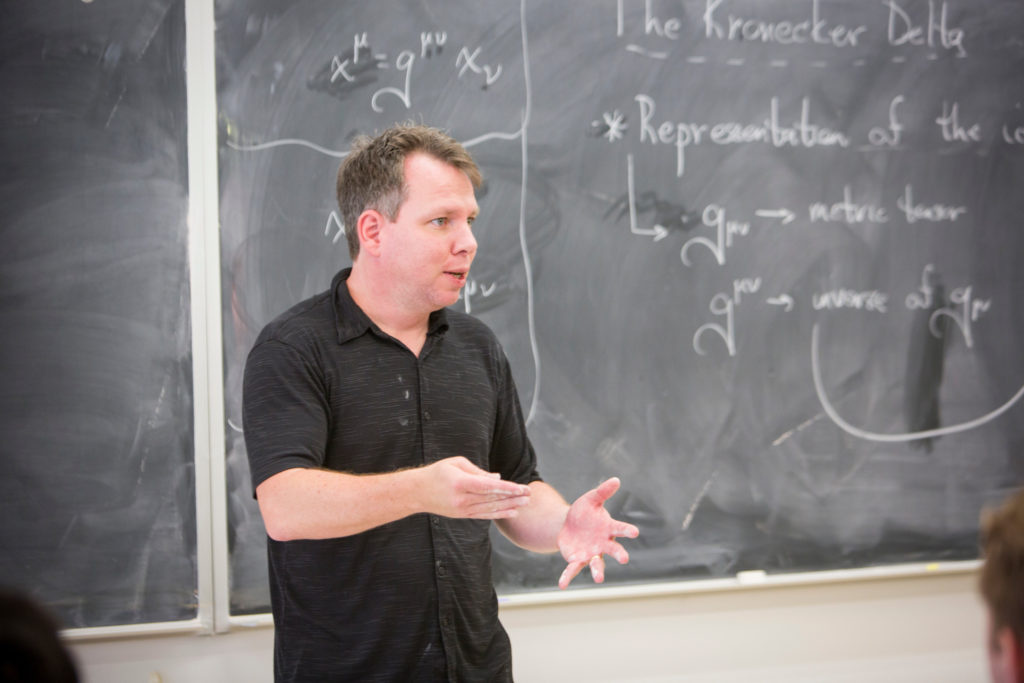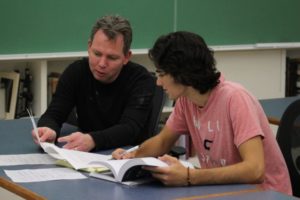
The COVID-19 pandemic threw an enormous roadblock in front of the progress of physics, shutting many scientists out of their laboratories and away from their research. As a theoretical physicist, Jonas Mureika, Ph.D., was spared this setback. “I’m in a fortunate situation,” says Mureika, professor and chair of the physics department at Loyola Marymount University. “The equipment I need is basically a pen and paper.”
What does make a difference for Mureika’s work is the ability to interact with other theoretical physicists, and over the next three years, he will have the opportunity to mingle with some of the most prominent scholars in his field. Mureika was recently named one of only seven KITP Scholars for 2021-2023 by the Kavli Institute for Theoretical Physics at the University of California, Santa Barbara. The prestigious fellowship, awarded annually to 6-8 individuals at teaching-intensive U.S. colleges and universities, provides 2-3 weeks of funded visits each year, during which the scholars congregate for programs and informal exchanges as they tackle a broad range of issues at the forefront of the science.“
KITP is one of the leading theoretical physics institutes, and it draws top scholars from all over the world,” Mureika says. “It’s exciting to be able to exchange ideas with these individuals, and it’s also a way of getting my research to more of a global audience.”

Mureika’s research focuses on black holes, and in particular the quantum gravity that predominated after the Big Bang, precipitating their creation. “We don’t really know how gravity works at very small distances,” Mureika says. “And that knowledge is a key to understanding the origins of the universe.”
Beyond what the KITP fellowship will do to advance his own work, Mureika is excited about what it will provide for his research students. “I would like to bring some of them there, to give them that exposure,” he says. “I want them to experience a research community —to know that physics is more than doing assignments or labs. It’s also about brainstorming with the person across the table from you, where you’re jotting down notes on a blackboard and coming up with new ideas.”
Mureika, who received the 2020 President’s Fritz B. Burns Distinguished Teaching Award —given to one LMU professor each year who embodies the best aspects of teaching —continues to be motivated by the thrill of sharing his passion for theoretical physics with his students. “When you do the kind of physics I do, the universe ends up looking like a very weird place with rules that, at first, don’t seem to make sense,” he says. “I get great joy out of teaching that to students and seeing the sense of wonder they experience as they go through this process of discovery.”



